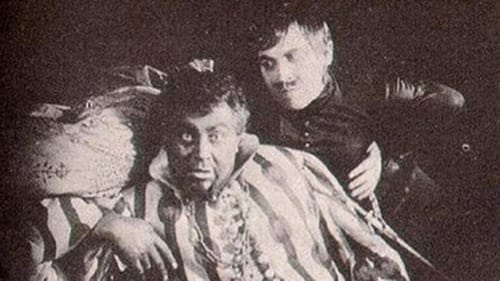
Rita
A Film Albatros production based on the play by Paul Armont and Marcel Gerbidon.

Desdemona
Even without the benefit of sound, the 1922 German adaptation of Othello seems more operatic than Shakespearean. This may be due to the casting of Emil Jannings, to whom restraint and subtlety were strangers. Werner Krauss, of Cabinet of Dr. Caligari fame, is on hand as the duplicitous Iago. Appearing as the unfortunate Desdemona is Lea Von Lenkeffy, better known as Lya de Putti. Produced on an elaborate scale, Othello may not be true to the letter of Shakespeare, but is undeniably a smorgasbord of visual delights.


Noémi
Faithful to his word, Michael Tímar, captain of the St. Barbara, becomes the guardian of Kondya, daughter of a Turkish aristocrat on the run. Later, he weds the grateful young Turkish girl whom he saved from the waters of the Danube. While skillfully managing his wife's fortune, entrepreneur Tímar becomes an important wholesaler of wheat and exports his products to Brazil. But his marriage of convenience proves a failure. He is torn between the demands of bourgeois civilization, governed by money, and the ideal of freedom, consisting of living simply within nature. He then takes refuge by the side of the sweet Noemi on an island on the Danube.

Veér Magda (as Lenkeffy Ica)

Szulamit (as R.Lenkeffy Ica)
Shulamith was written in 1883 by the father of modern Yiddish theatre, Abraham Goldfaden. The opera, based on an ancient legend, tells the story of Shulamith, a girl who is trapped in a well in the desert and falls in love with her rescuer. Although they vow to be faithful he marries someone else, but years later are reunited. Shulamith was the opening performance at the Hebrew Dramatic Club in Princes Street in 1886 and ever-popular with the crowds, it returned to the Yiddish stage in London a number of times in the 1910s and 20s. The well-loved lullaby Raisins and Almonds was written by Goldfaden for the opera.

An older man wants to propose to a young woman. However, her family decides to form a plot so that she won't get engaged.


